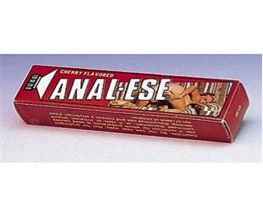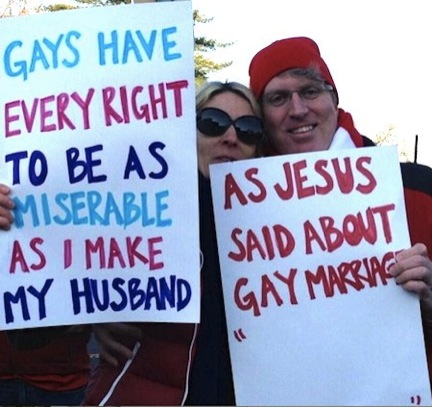Straight for Justice: Queer Rights for the Straight Girl
Outlier Collective asked me to write about LGBT/queer issues, namely, “to what extent can we, as hetero-identifying people who are LGBT allies, discuss queer issues, even when we support them completely? Do we have the right to be involved to the same extent?”
I threw that question out there to my LGBTQ friends, and got a resounding response: Yes, we welcome any and all straight allies with open arms (if not legs).
One friend of mine, a professor, wrote: “…[T]here is no point in social justice movements that remain exclusive and require the ‘authority of experience’ as credentials for membership. This not only results in creating a ghetto, precisely the antithesis of the goals of such movements, but also perpetuates the us-them, identity politics approach that justifies the group’s social exclusion or oppression in the first place.”
Joylon Helterman, editor-at-large at Boston Magazine agreed that while everyone has the “right” to be involved in the discussion, he cautioned about the difficult balancing act straight allies face, telling me that on the one hand, “…if you fastidiously walk on eggshells to be polite and PC about the issues, credibility often suffers, whereas if you cut through the bullshit and tell it like it is,” on the other, as a non-LGBTQ, you risk offending some in the community. “It’s like that Jerry Seinfeld thing about telling Jewish jokes,” he said.
A Boston-based attorney also agreed. “Yes, we need straight allies and we want you to be involved and fight for us; we won’t achieve equality without you.” Equality, he explained, includes “the right not to be fired for being gay (there is no federal law banning this practice though it’s been kicking around Congress for years). We want to get married—we’re not looking for your churches or synagogues to be forced to participate in same sex weddings—just clerks, judges, photographers and wedding cake bakeries…”
Speaking of wedding cakes, gay marriage, the focus of most current gay activism, is the civil rights issue of our time. As I write this piece, it looks like Hawai’i is set to become the next state to file a same-sex marriage bill.
If the bill becomes law, it will be the 15th state (plus DC) to give same-sex couples the same legal rights and protections under state law. While 15+ states out of 50 may not seem like much, it means that over one-third of Americans will live in a more equal world, one where same-sex couples can get married and divorced, be at their partner’s bedside in the hospital, adopt children, inherit their spouses’ assets, and otherwise enjoy the same economic and social benefits as the rest of us straight taxpayers and citizens.
Yay. And, yawn?
Not quite. There is still plenty of prejudice and hatred out there. Not to mention the other two-thirds of Americans living in places without same-sex marriage; or laws protecting LGBTQs from workplace discrimination, for example.
Depending on which of the two Americas you now inhabit, gays are either a major part of mainstream culture or the victims of (state) constitutional amendments banning them from marriage. The blue state vs. red state divide continues to polarize us, but there are encouraging rainbow-colored signs of hope on the horizon: it looks like our kids have a better understanding and less shame about their sexual identity than we did. We still must do more to end discrimination and hatred against the LGBTQ community, but, compared to where American society was when I was growing up in the 1980s, tremendous strides have been made for queer rights.
Want a random, mundane example or how much the world has changed in the past decade or so?
I took my 12-year-old son out to grab a bite after his Tae Kwon Do class last Saturday morning. Sal’s Pizzeria was blasting a Queer Eye for the Straight Guy 10-year reunion special on its two giant flat screen TVs—a remarkable occurrence in its own right, given that we were right outside Fenway Park in the midst of the World Series. My son and I watched for a minute or so, then:
“Mom, what’s queer?”
“It’s another word for ‘gay.’ Like when guys like guys and women prefer women.”
“Oh. You have gay friends.”
“Yup. I have a ton of gay friends.”
“Really? Other than Paul, who else is gay?”
“I’m not sure you know anyone else, and anyway even if you do, it’s kind of their own private thing if they’re gay or not, you know what I mean?”
“I guess so…well, I know I’m straight, mom, and so are you, but I don’t care who’s gay or straight. It doesn’t matter, right?”
“That’s right, babe.”
Cue montage scene of Queer Eye dudes cleaning out guys’ apartments. Among other horrors for mothers of 12-year olds, we see them finding stacks of (pixelated) porn, a big black rubber dildo, and cherry-flavored Anal-Ese, which one of the Queer Eyes squirts out of the tube onto his finger and tastes…
Ugh! Who knew I’d need to summon all of my 21st century parenting powers in a pizzeria on a Saturday morning?
“It’s something grown-ups put on their butts when they want to have sex there so it won’t hurt.”
“Ew!”
“Yeah, tell me about it. Now eat your pizza before something else happens that I don’t want you to ask me about.”
One of my married, gay activist friends who works in DC said: “Younger Millennials don’t give a fuck [about gay rights]. GenXrs are pretty much the last group where [being LGBTQ] wasn’t on the forefront. They were ones to have their first taste of either sensitivity training or awareness in the workplace or in school. And Generation X [LGBTQs and their straight allies] paved the way, because now this next generation really does not care…even within the employee resource group at work the younger people are wondering why we even bother talking about gay equality.”
He also told me that he’s found that as gay rights goes mainstream, transgender issues are the new frontier for many queer activists.
Chuck Soldano, a Philadelphia-based interior designer agrees, saying however that gay rights is mainly a non-issue among those privileged enough to live in affluent, well-educated, metropolitan areas. Still, he notes that “…[Straight allies’] voices are as strong as anyone else’s. The same way I strive to have a voice and rights as a gay man. We all want the same things. The conversion should be: of course we’re all seeking equality. It doesn’t matter what shoes we’re standing in – it’s not taboo [for straights to fight for gay rights] – that in itself is discrimination.”
Why should gay Americans who pay taxes and contribute to our society in countless ways not be granted the same rights under the law as straight folks? From an economic standpoint alone – leave aside your moral and religious misgivings if you can for a moment – it’s simply unjust. On this, even Dick Cheney and Senator Rob Portman agree—once their children came out, of course!
Soldano thinks that the gay community has fought this battle from the wrong side. “Take the rights away from everybody [gays and straights]: take away the inheritance tax [exemption], the economic benefits. Why should I have to pay 50 percent inheritance tax on property that I already own?”
Empathy is the great equalizer.
Let’s be clear: there’s still plenty of hating out there. Few professional athletes or rappers have dared to come out, for example. Bullying in schools must stop. That’s why the more of us on the battle lines for justice and equality, the better. Why should LGBTQs fight their battles alone?
As more LGBTQs come out, the more ordinary they become—making it easier for straights to emphasize with them, and yes, relate to them as fellow human beings. We all want the same things, more or less: to live freely with a loved one; to provide a better future for our children; to live a life well lived, with dignity.
Humans first.
My professor friend also pointed out the futility of labeling people as strictly hetero-, bi- or homosexual. Ideally, we should strive move beyond simplistic labels and see each other as humans first: everyone should care about their loved ones’ and friends’ wellbeing, part of which includes our ability to live a life free from violence and oppression.
Soldano echoed this observation, adding that: “…My partner Alan is Haitian. Bringing him home to meet my parents meant I had to jump the racial hurdle with my mother. She finally said, ‘You know, the more time I spend with Alan, the [skin] color disappears.’ …[T]he same thing applies to ignorance about gay people. Once you know someone who’s gay, the label disappears – we’re all the same, without the labels and titles.”
As a straight woman, I’ll never know what’s it’s like to come out of the closet. I’ve never been afraid that my family and friends would reject me for knowing who I really am. I don’t have to look over my shoulder before I hold hands with my man or kiss him when we’re out on the street. But, as a woman, I know what it’s like to be discriminated against, to be thought of as “less than.” As a younger woman, I was traumatized by sexual harassment in the workplace, and on the street. As students in Italy, my girlfriends and I were constantly verbally and physically harassed in public—unless we were with a man. Even now that I’m older (and wiser), I’m still not taken as seriously or paid as much as a man with my same skills and age. My life experiences have made me sensitive to injustice, and pissed off about it.
It’s not that we straights would ever claim or dare to speak for those in the LGBTQ community; it’s that we want to speak out with you. We raise our voices with you, so that your message will be heard even more.


Wow, you handled the Anal-Ease question quite gracefully! Impressive.
ha! Thank you. I was half-asleep at the time, too. What the hell do you say? You can’t act like it didn’t happen! As awkward as adolescent life was for us, these are the things that our parents never faced!